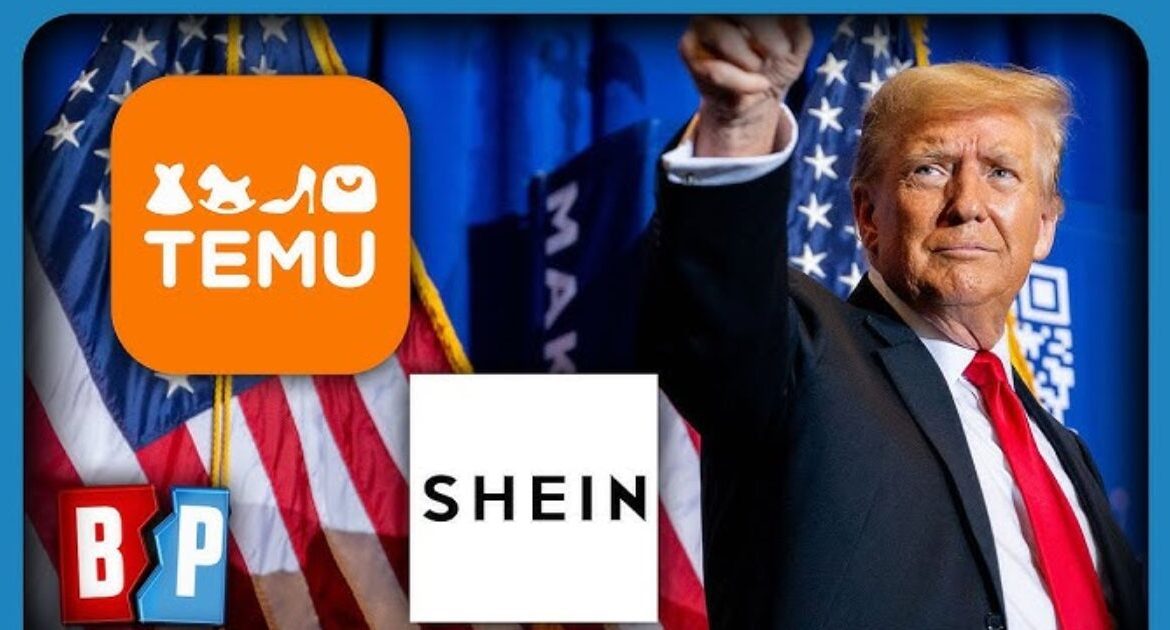

Critics have taken predictable swipes at President Trump’s tariffs, mocking the decision to impose duties on the barren Heard and McDonald Islands—two frozen patches near Antarctica inhabited only by penguins and seals—and warning that changes to de minimis rules could wreck e-commerce. However, both of these trade policies are rational and necessary steps to reduce imports and boost investment in the United States.
The first point is a throwaway. The islands fall under Australian jurisdiction and were automatically covered by Trump’s blanket 10% tariff. Oddly, U.S. import records show a few million dollars’ worth of goods coming from these islands each year, though no one lives there and it’s not entirely clear why. The move is symbolic, making it clear that Australian imports will be tariffed equally—even if they’re shipped from obscure overseas territories.
The de minimis issue, on the other hand, actually matters. The change reflects a deliberate and necessary effort to curb China and Hong Kong’s abuse of untaxed, low-value shipments that sidestep broader trade duties. Both policies are rational and part of a larger plan to reduce imports, increase foreign investment in America, and support domestic manufacturing. If foreign companies want to sell to the U.S., the only way around tariffs is to invest, build a factory, and manufacture here. That goes for products under $800—and for penguins, too.
Under current law, the de minimis threshold allows shipments valued under $800 to enter the United States duty-free. The rule was designed to simplify customs procedures and encourage small, low-volume trade. But in the age of global e-commerce, it’s become a loophole.
Chinese and Hong Kong-based sellers, in particular, have exploited the rule to flood the U.S. with cheap goods, avoiding tariffs and customs scrutiny. These low-value packages, often ordered through platforms like AliExpress, Temu, and Shein, are individually small but collectively massive in volume and impact. By declaring each item as a separate shipment under $800, these sellers effectively bypass import duties that American manufacturers are required to pay.
This practice undermines U.S. businesses in multiple ways. First, it creates an uneven playing field. American companies have to follow strict regulatory and tax obligations, while foreign sellers can ship untaxed goods directly to consumers.
Second, it overwhelms U.S. customs enforcement. Millions of small packages arrive daily, and the vast majority go unchecked, making it easy to mislabel goods, evade safety standards, or sneak in counterfeit products.
Finally, it cuts into U.S. revenue. Tariffs are meant to protect domestic industry and generate income for the government.
The de minimis loophole strips both of these benefits.
President Trump recognized this issue during his first term. While he wasn’t able to formally lower the threshold at the time, his administration began taking steps to address the loophole. U.S. Customs and Border Protection (CBP) was instructed to more closely monitor de minimis shipments, and the U.S. Trade Representative (USTR) raised the issue in trade talks, particularly with China. Trump’s trade team understood that without action, the loophole would grow into a floodgate.
Now, the push to close this gap is gaining renewed attention. Former members of the Biden administration and some members of Congress have voiced concerns as well, but Trump’s position remains the clearest and most consistent. He argues that if foreign companies want access to the U.S. market, they need to play by the same rules as American businesses. And if they won’t, they should be incentivized to build their factories in the United States, hire American workers, and pay American taxes.
Lowering the de minimis threshold—or eliminating it for certain countries—would go a long way toward restoring fairness. It would reduce the volume of untaxed imports, increase customs oversight, and level the playing field for U.S. producers. It would also send a clear message that trade policy is not just about cheaper consumer goods but about national strength, secure supply chains, and economic sovereignty.
In the end, the tariffs on penguin-inhabited islands may be quirky, but the strategy behind Trump’s trade policy is anything but random. It’s a long-term play aimed at bringing production back to the U.S. and making the country less dependent on cheap imports from geopolitical rivals.
Whether it’s a symbolic move on frozen islands or a targeted policy against e-commerce loopholes, the message is the same: if you want to sell to the United States, you need to invest in the United States.
The post From De Minimis to Penguins: Trump’s Tariffs Are Rational appeared first on The Gateway Pundit.

